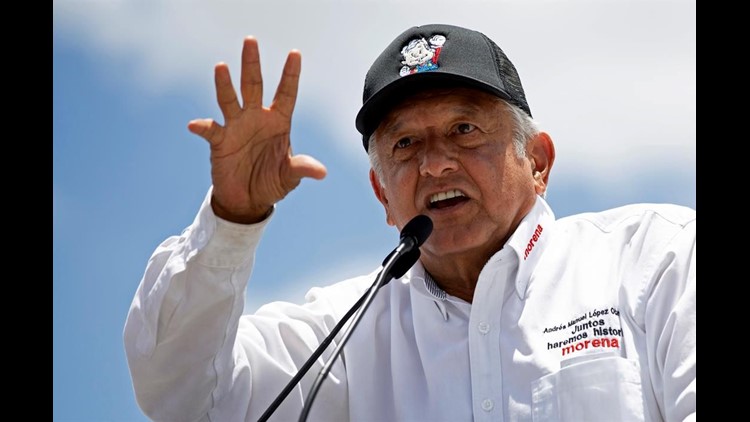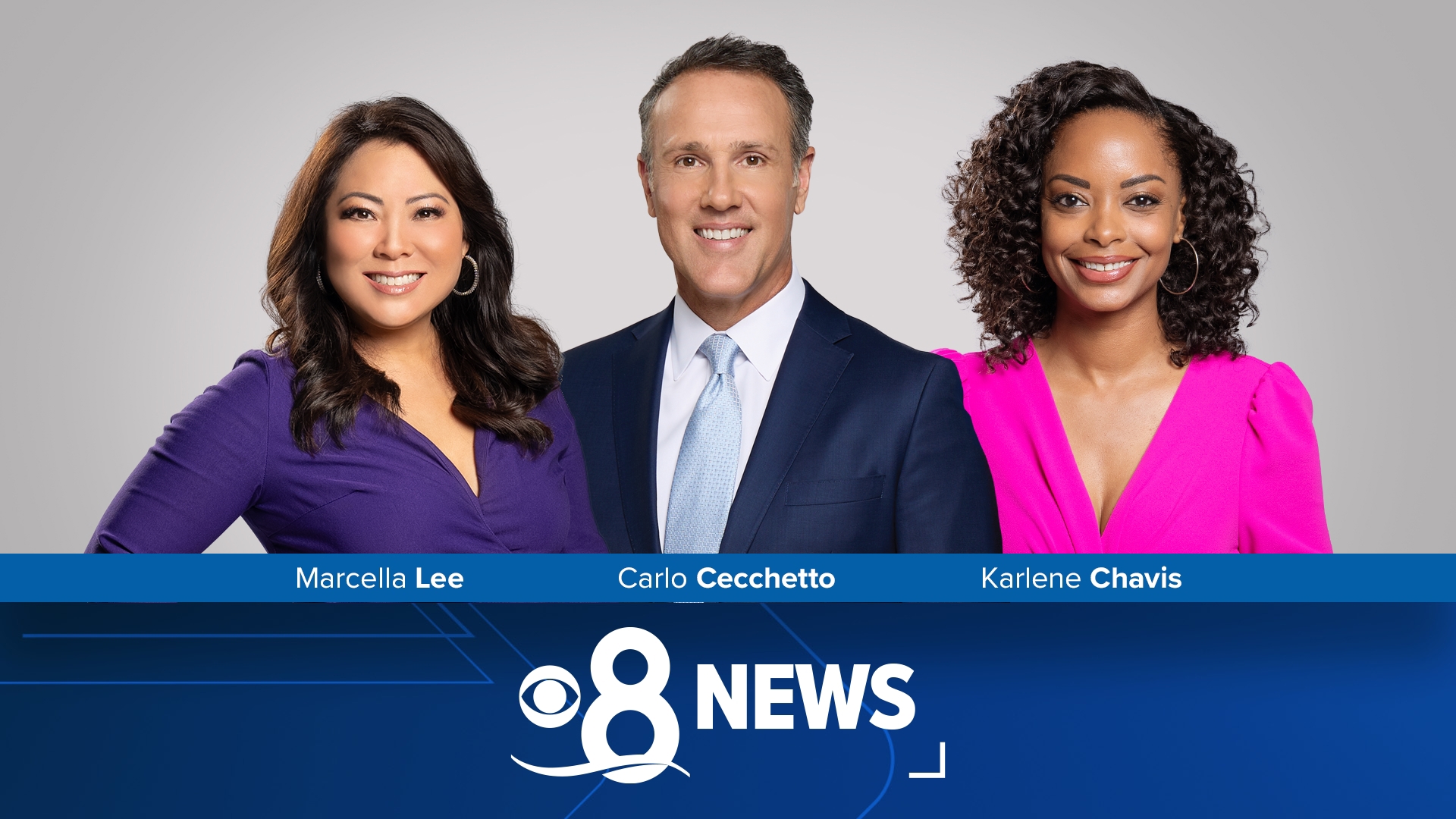MEXICO CITY (AP) — While financial markets fret about left-leaning candidate Andres Manuel Lopez Obrador, the man himself is calmly cruising toward what polls say is a likely victory in Mexico's July 1 presidential election, seemingly impervious to attacks — and without the angry tone that marked his previous two runs for the top job.
The graying, slow-spoken Lopez Obrador, known to devotees and detractors alike as AMLO, lights up when he tells supporters at campaign rallies that they are about to make history.
"This is going to be a peaceful, orderly change, but at the same time, it will be radical," Lopez Obrador said recently, drawing cheers and cries of "Presidente! Presidente!" from a crowd in the colonial town of San Miguel de Allende.
Markets wonder whether a President Lopez Obrador would cause the Mexican peso to tank — experts say probably not — or reverse the openings to private oil companies — Lopez Obrador says he probably won't. But it's hard to judge things based on his policy platforms, because they are prone to change, often seemingly overnight.
That distaste for policy details, along with Lopez Obrador's penchant for playing to his base and making big promises while keeping his own advisers guessing as to what he really means, has drawn parallels to U.S. President Donald Trump.
Analysts say both men view truculence and obstinacy as political virtues and as such could probably understand one another, though Trump once referred obliquely to some Mexican candidates as "not that good" in an apparent nod at Lopez Obrador.
"I think that both share a sense of populism," political scientist Jesus Silva-Herzog said. "I think they both belong to this historic moment of the rise of populist politicians who are ... uninterested in the details of public policy."
But where the Trump brand is associated with brass name plates and glitz, Lopez Obrador's is endowed with a deep sense of history and destiny after a dozen years on the outside as a perennial opposition candidate. After serving as Mexico City mayor in 2000-2005, he returned to his roots as the irreverent, man-of-the-people rally leader that he was from 1988 to 2000 in the oil fields of his home state, the Gulf coast swamps of Tabasco.
Lopez Obrador, 64, sees his movement as changing the history of Mexico, touts himself as a savior of the poor and argues that corruption is the country's biggest problem. Beyond that, policies come and go.
After losing to conservative Felipe Calderon by a razor-thin margin of just 0.56 percent in 2006, and coming in second again in 2012 behind current President Enrique Pena Nieto, this time around that formula may be enough to win.
His two main rivals, Ricardo Anaya and Jose Antonio Meade, are champions of the technocrats, the kind of market-oriented policy wonks who have run Mexico since at least 1982. But the growth and economic stability they promised hasn't emerged, and violence has skyrocketed.
Fed up with those and other domestic ills such as corruption, the Mexican electorate is ripe for change, and Lopez Obrador has a way of explaining his vision for change with striking clarity and simplicity.
He likes to draw a parallel to one of the most important transformations in Mexican history: Generations of dying Roman Catholics had willed their lands and fortunes to the church, tying up much of Mexico's wealth for perpetuity and strangling the economy. Then President Benito Juarez expropriated much of the church's holdings. Now, Lopez Obrador says, he wants to free up the economy by reducing the influence well-connected business magnates hold over the federal government.
"Just as Juarez separated the church and the state, so will I separate economic power from political power," he told a crowd in Mexico City recently.
Lopez Obrador's connection with his followers is deeply personal — something that has eluded Meade of the governing Institutional Revolutionary Party and Anaya, who heads a left-right coalition
The other main contenders have campaigned in part on dire warnings about a Lopez Obrador presidency, and Anaya has tried to project the image of an optimistic and modern tech CEO a la the late Steve Jobs.
With his rumpled appearance and distinctive regional accent — think Bernie Sanders south — Lopez Obrador inspires those tired of slick, well-heeled politicians.
Javier Quijano, a lawyer who represented Lopez Obrador when then President Vicente Fox tried to prevent him from running in 2006, described Lopez Obrador as a "supremely frugal" man who often met him for breakfast or lunch at the candidate's tatty, middle-class apartment on Mexico City's south side.
"It was very humble, very simple, and he was always attentive and well-mannered to people who work for him," Quijano recalled. "Just the very fact that an honest man with rectitude would win the presidency, that is enormous progress."
Lopez Obrador promises to regenerate the millions of small farms whose main output over the last 25 years has been a steady stream of migrants to Mexico's big cities and the United States. He would also need to reverse a severe decline in Mexico's oil industry, with the country now importing most of its gasoline from the U.S.
Supporters say he is at least challenging what he considers a cruel neoliberal order that keeps Mexico down.
"You feel it at every rally, that on July 2 we are going to be celebrating. You feel people are overflowing with emotion," 30-year-old computer programmer Antonio Arroyo Ceron said at a recent campaign gathering in the capital. "We have a hope that the country will change its entire mentality."
Lopez Obrador's crowds tend to trend older — people like retired tailor Ruben Lopez who have lived all their lives under the long-ruling Institutional Revolutionary Party, or PRI, except for a 12-year interval at the beginning of new century.
"During the 80 years of the PRI, they never did anything to improve the country," said Lopez, 74. This election "will be the first moment of joy ever for this country," he added.
Beyond the enthusiasm, neither Lopez Obrador nor his challengers have yet put forth a credible plan to lower homicide rates that have reached levels unseen in decades.
Lopez Obrador has offered a vague plan to offer an amnesty for some criminal convictions, which apparently could mean anything from cancelling felonies after sentences have been served to sentence reductions for cooperating witnesses to freeing poor farmers jailed for growing drug crops.
Regardless, a Lopez Obrador victory would probably mean a large dose of symbolism and an even larger dose of pragmatism.
Antonio Sola, a Spanish political consultant who helped design the "Lopez Obrador is a danger" campaign that swung the 2006 election against him, now says that "this is not the Andres Manuel I competed against in 2006."
"This is a candidate who has evolved and moderated," Sola said, comparing Lopez Obrador to Brazil's Luiz Inacio Lula da Silva, a one-time socialist firebrand who won election on his fourth try and proved a business-friendly president even while expanding social programs.
In 2006, Mexican business leaders sought to hurt Lopez Obrador's campaign by likening him to socialist President Hugo Chavez in Venezuela. After the narrow loss to Calderon, Lopez Obrador responded angrily, claiming fraud and mounting a months-long blockade of Mexico City's main boulevard.
This time around he has been taking it all in stride, at least publicly. Despite railing frequently against what he calls the "mafia of power," Lopez Obrador responds to even the most vicious political attacks by repeating what has become almost a mantra — "peace and love" — and by deflecting them with humor.
After some suggested without proof that he may have benefited from Russian election tampering, Lopez Obrador filmed a video by the side of a harbor in the Gulf coast state of Veracruz joking that his name was actually Andres Manuelovich and saying he was waiting for a Russian submarine bringing him gold from Moscow.
Even Meade called that a brilliant bit of politics.



